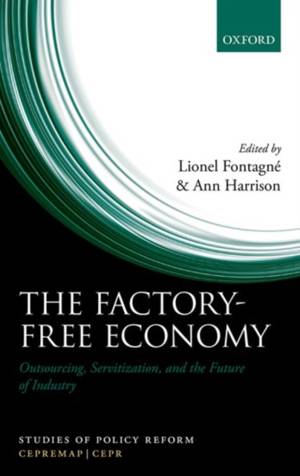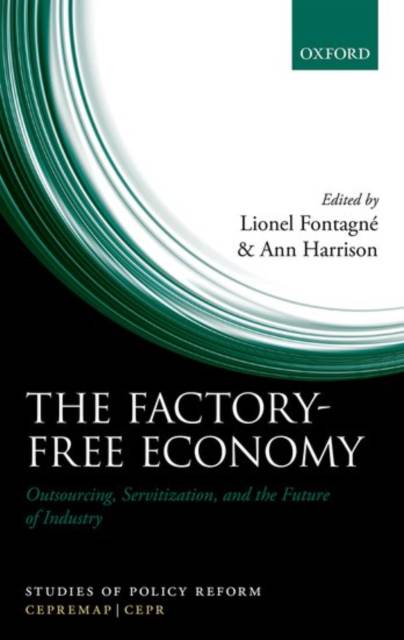
- Retrait gratuit dans votre magasin Club
- 7.000.000 titres dans notre catalogue
- Payer en toute sécurité
- Toujours un magasin près de chez vous
- Retrait gratuit dans votre magasin Club
- 7.000.000 titres dans notre catalogue
- Payer en toute sécurité
- Toujours un magasin près de chez vous
113,45 €
+ 226 points
Description
De-industrialization, accelerated by the financial crisis, is a long term process. The comparative advantage of emerging economies shifted towards more advanced goods and their growing populations commanded an increasing share in global demand. This shift towards a factory-free economy in high income countries has drawn the attention of policy makers in North America and Europe. Some politicians have articulated alarming views, initiating mercantilist or 'beggar-thy-neighbour' cost-competitiveness policies. Yet companies that concentrate research and design innovations at home but no longer have any factories there may be the norm in the future. This volume proposes an economic analysis of this phenomenon and includes 11 contributions which complement each other and tackle the problem from different angles. The evidence in this book suggests that de-industrialization is a process that happens over time in all countries, even China. One implication is that criticism of China is not likely to provide a solution to these long term trends. Another implication is that the distinction between manufacturing and services is likely to become increasingly blurry. More manufacturing firms are engaging in services activities, and more wholesale firms are engaging in manufacturing. One optimistic perspective suggests that industrial country firms may be able to exploit the high-value added and skill-intensive activities associated with design and innovation, as well as distribution, which are all components of the global value chain for manufacturing. Although this ongoing transformation of the industrial economies may be consistent with evolving comparative advantage, it has significant short-run costs and requires far-sighted investments. These include the costs to workers who are caught in the shift from an industrial to a service economy, and the need to invest in new infrastructure and education to prepare coming generations for their changing roles.
Spécifications
Parties prenantes
- Auteur(s) :
- Editeur:
Contenu
- Nombre de pages :
- 384
- Langue:
- Anglais
- Collection :
Caractéristiques
- EAN:
- 9780198779162
- Date de parution :
- 16-05-17
- Format:
- Livre relié
- Format numérique:
- Genaaid
- Dimensions :
- 137 mm x 218 mm
- Poids :
- 566 g







